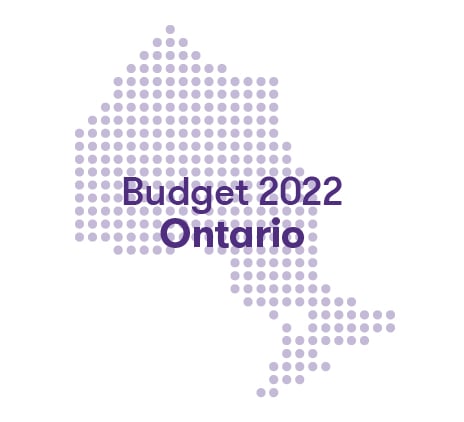-
Financial reporting and accounting advisory services
You trust your external auditor to deliver not only a high-quality, independent audit of your financial statements but to provide a range of support, including assessing material risks, evaluating internal controls and raising awareness around new and amended accounting standards.
-
Accounting Standards for Private Enterprises
Get the clear financial picture you need with the accounting standards team at Doane Grant Thornton LLP. Our experts have extensive experience with private enterprises of all sizes in all industries, an in-depth knowledge of today’s accounting standards, and are directly involved in the standard-setting process.
-
International Financial Reporting Standards
Whether you are already using IFRS or considering a transition to this global framework, Doane Grant Thornton LLP’s accounting standards team is here to help.
-
Accounting Standards for Not-for-Profit Organizations
From small, community organizations to large, national charities, you can count on Doane Grant Thornton LLP’s accounting standards team for in-depth knowledge and trusted advice.
-
Public Sector Accounting Standards
Working for a public-sector organization comes with a unique set of requirements for accounting and financial reporting. Doane Grant Thornton LLP’s accounting standards team has the practical, public-sector experience and in-depth knowledge you need.
-
Tax planning and compliance
Whether you are a private or public organization, your goal is to manage the critical aspects of tax compliance, and achieve the most effective results. At Doane Grant Thornton, we focus on delivering relevant advice, and providing an integrated planning approach to help you fulfill compliance obligations.
-
Research and development and government incentives
Are you developing innovative processes or products, undertaking experimentation or solving technological problems? If so, you may qualify to claim SR&ED tax credits. This Canadian federal government initiative is designed to encourage and support innovation in Canada. Our R&D professionals are a highly-trained, diverse team of practitioners that are engineers, scientists and specialized accountants.
-
Indirect tax
Keeping track of changes and developments in GST/HST, Quebec sales tax and other provincial sales taxes across Canada, can be a full-time job. The consequences for failing to adequately manage your organization’s sales tax obligations can be significant - from assessments, to forgone recoveries and cash flow implications, to customer or reputational risk.
-
US corporate tax
The United States has a very complex and regulated tax environment, that may undergo significant changes. Cross-border tax issues could become even more challenging for Canadian businesses looking for growth and prosperity in the biggest economy in the world.
-
Cross-border personal tax
In an increasingly flexible world, moving across the border may be more viable for Canadians and Americans; however, relocating may also have complex tax implications.
-
International tax
While there is great opportunity for businesses looking to expand globally, organizations are under increasing tax scrutiny. Regardless of your company’s size and level of international involvement—whether you’re working abroad, investing, buying and selling, borrowing or manufacturing—doing business beyond Canada’s borders comes with its fair share of tax risks.
-
Succession & estate planning
Like many private business owners today, you’ve spent your career building and running your business successfully. Now you’re faced with deciding on a successor—a successor who may or may not want your direct involvement and share your vision.
-
Tax Reporting & Advisory
The financial and tax reporting obligations of public markets and global tax authorities take significant resources and investment to manage. This requires calculating global tax provision estimates under US GAAP, IFRS, and other frameworks, and reconciling this reporting with tax compliance obligations.
-
Transfer pricing
Recognized as a leader in the transfer pricing community, our award-winning team can help you expand your business beyond borders with confidence.

-
Transactions
Our transactions group takes a client-centric, integrated approach, focused on helping you make and implement the best financial strategies. We offer meaningful, actionable and holistic advice to allow you to create value, manage risks and seize opportunities. It’s what we do best: help great organizations like yours grow and thrive.
-
Restructuring
We bring a wide range of services to both individuals and businesses – including shareholders, executives, directors, lenders, creditors and other advisors who are dealing with a corporation experiencing financial challenges.
-
Forensics
Market-driven expertise in investigation, dispute resolution and digital forensics
-
Cybersecurity
Viruses. Phishing. Malware infections. Malpractice by employees. Espionage. Data ransom and theft. Fraud. Cybercrime is now a leading risk to all businesses.
-
Consulting
Running a business is challenging and you need advice you can rely on at anytime you need it. Our team dives deep into your issues, looking holistically at your organization to understand your people, processes, and systems needs at the root of your pain points. The intersection of these three things is critical to develop the solutions you need today.
-
Creditor updates
Updates for creditors, limited partners, investors and shareholders.

-
Governance, risk and compliance
Effective, risk management—including governance and regulatory compliance—can lead to tangible, long-term business improvements. And be a source of significant competitive advantage.
-
Internal audit
Organizations thrive when they are constantly innovating, improving or creating new services and products and envisioning new markets and growth opportunities.
-
Certification – SOX
The corporate governance landscape is challenging at the best of times for public companies and their subsidiaries in Canada, the United States and around the world.
-
Third party assurance
Naturally, clients and stakeholders want reassurance that there are appropriate controls and safeguards over the data and processes being used to service their business. It’s critical.
-
 Assurance Important changes coming to AgriInvest in 2025AgriInvest is a business risk management program that helps agricultural producers manage small income declines and improve market income.
Assurance Important changes coming to AgriInvest in 2025AgriInvest is a business risk management program that helps agricultural producers manage small income declines and improve market income. -
 Tax alert Agricultural Clean Technology ProgramThe Agricultural Clean Technology Program will provide financial assistance to farmers and agri-businesses to help them reduce greenhouse gas (GHG) emissions.
Tax alert Agricultural Clean Technology ProgramThe Agricultural Clean Technology Program will provide financial assistance to farmers and agri-businesses to help them reduce greenhouse gas (GHG) emissions. -
 Tax alert ACT Program – Research and Innovation Stream explainedThe ACT Research and Innovation Stream provides financial support to organizations engaged in pre-market innovation.
Tax alert ACT Program – Research and Innovation Stream explainedThe ACT Research and Innovation Stream provides financial support to organizations engaged in pre-market innovation. -
 Tax alert ACT Program – Adoption Stream explainedThe ACT Adoption Stream provides non-repayable funding to help farmers and agri-business with the purchase and installation of clean technologies.
Tax alert ACT Program – Adoption Stream explainedThe ACT Adoption Stream provides non-repayable funding to help farmers and agri-business with the purchase and installation of clean technologies.
-
Builders And Developers
Every real estate project starts with a vision. We help builders and developers solidify that vision, transform it into reality, and create value.
-
Rental Property Owners And Occupiers
In today’s economic climate, it’s more important than ever to have a strong advisory partner on your side.
-
Real Estate Service Providers
Your company plays a key role in the success of landlords, investors and owners, but who is doing the same for you?

-
Mining
There’s no business quite like mining. It’s volatile, risky and complex – but the potential pay-off is huge. You’re not afraid of a challenge: the key is finding the right balance between risk and reward. Whether you’re a junior prospector, a senior producer, or somewhere in between, we’ll work with you to explore, discover and extract value at every stage of the mining process.
-
Oil & gas
The oil and gas industry is facing many complex challenges, beyond the price of oil. These include environmental issues, access to markets, growing competition from alternative energy sources and international markets, and a rapidly changing regulatory landscape, to name but a few.

On November 14, 2022, Finance Minister Peter Bethlenfalvy delivered the 2022 Ontario Economic Outlook and Fiscal Review (the “Fiscal Review”). More commonly known as the Fall Economic Statement, the Fiscal Review serves as a precursor to the provincial government’s 2023 budget. Short-term uncertainty was a key theme in the Fiscal Review, as the province continues to navigate global headwinds like inflation and high interest rates.
The Fiscal Review includes a progress update on the government’s plan to build Ontario and introduces several measures to help businesses and families keep costs down. Ontario’s deficit for fiscal year 2022-23 has been revised downward since the release of the province’s April budget from $19.9 billion to $12.9 billion. Furthermore, the Fiscal Review is projecting a slower growth in real GDP from the previous year, 2.6% for 2022 and 0.5% for 2023.
Estimated deficits
|
|
2022-23 |
2023-24 |
2024-25 |
|
Original estimate (Budget 2022) |
($19.9B) |
($12.3B) |
($7.6B) |
|
Revised estimate (Fiscal Review 2022) |
($12.9B) |
($8.1B) |
($0.7B) |
Measures for businesses
Immediate expensing rules
Ontario is providing immediate expensing to allow Canadian Controlled Private Corporations (CCPCs) to write-off up to $1.5 million of certain eligible capital property purchased on or after April 19, 2021 that becomes available for use before January 1, 2024. This tax incentive is also available to Canadian resident sole proprietors (other than trusts) and certain partnerships where all the partners are CCPCs or Canadian resident individuals (other than trusts), but only for eligible property acquired on or after January 1, 2022, and that will become available for use before January 1, 2025.
The $1.5 million annual limit must be shared by members of an associated group. Eligible properties are capital property subject to the capital cost allowance rules other than property included in Classes 1 to 6, 14.1, 17, 47, 49 and 51, which are generally long-life assets such as buildings, and unlimited life intangibles such as goodwill. Eligible properties include office furniture in Class 8, passenger vehicles and tractors in Classes 10 and 10.1, freight trucks and rental cars in Class 16, data network infrastructure equipment and systems software in Class 46, as well as computers in Class 50.
This measure parallels the federal immediate expensing rule enacted on June 23, 2022.
Small Business Deduction (SBD)
Currently, Ontario provides a small business corporate income tax rate of 3.2% for CCPCs on their first $500,000 of active business income. This small business rate is reduced gradually for CCPCs and associated CCPCs when the taxable capital employed in Canada reaches $10 million in the previous year, and eliminated at $15 million.
Ontario’s announcement mirrors the federal government’s proposals to increase the upper limit of taxable capital at which the SBD is fully ground down to $50 million, up from $15 million. The $10 million threshold remains intact. This measure would apply to taxation years beginning on or after April 7, 2022.
As of the date of this tax alert, a bill containing the proposed federal rules has not received Royal Assent. Please see our recent tax alert on the proposed federal SBD changes to learn more.
At the date of issue, in addition to Ontario, BC is the only other province to confirm their intention to follow the federal proposal.
Measures for individuals
Ontario Disability Support Program (ODSP)
The Ontario Disability Support Program (ODSP) provides income support to people with disabilities. ODSP recipients are subject to a clawback based on their income levels. Currently, ODSP recipients can earn up to $200 net income per month without a reduction in benefits. Each additional dollar earned reduces the ODSP payment by 50 cents.
The Fiscal Review proposes to increase the monthly ODSP earnings exemption from $200 to $1,000 per month. The ODSP recipient would keep 25 cents of income support for each dollar earned above the $1,000 monthly exemption. The proposed measures include plans to annually adjust allowances for inflation under the ODSP and the maximum monthly amount for the Assistance for Children with Severe Disabilities program, beginning in July 2023.
Guaranteed annual income system payments
The Fiscal Review proposes to double the Guaranteed Annual Income System (GAINS) payment for low-income seniors for 12 months starting in January 2023. This would increase the maximum monthly payment to $166 from $83 for single seniors, and $332 from $166 for couples.
Minimum Wage
The Fiscal Review includes the government’s recent announcement to increase the general minimum wage to $15.50/hour as of October 1, 2022. The other special minimum wage categories have also been proportionally increased. The next minimum wage increase will be announced in April 2023.
Excise tax measures
Gas tax and fuel tax cuts
The government previously introduced cuts to the gas tax (5.7 cents/litre) and fuel (diesel) tax (5.3 cents/litre) for six months beginning July 1, 2022. The cuts brought both taxes to the current level of 9 cents/litre. These cuts have been extended for another 12 months, to December 31, 2023. The government estimates that the average Ontario household will save $195 over the entire 18-month term of the tax reductions.
Review of the Tobacco Tax Act
The government expressed concerns regarding the impact of the trade in unregulated tobacco and is taking several steps to combat the situation, including:
- improving partnerships with First Nations by focusing on priorities such as economic development, business regulation, and community safety
- improved cooperation with federal authorities to heighten border protections against the illegal importation of unregulated tobacco
- working with wholesalers to improve guidance
- modernizing the oversight programs
As part of an overall strategy, the government is conducting a review of the existing Tobacco Tax Act, which could signal further changes ahead in the form of legislative amendments.
Other notable measures
The following notable announcements were made by the government in the Fiscal Review:
Initiatives to support the development of critical minerals, including in the significant ‘Ring of Fire’ region of Northern Ontario, include:
- a $12 million investment to extend the Ontario Junior Exploration Program (OJEP) for an additional two years
- an investment of $4 million per year over the next three years to create and support the Critical Minerals Stream
- spending commitments of $1 billion for legacy infrastructure related to the Ring of Fire region and $5 million over two years in a Critical Minerals Innovation Fund were reiterated from ON Budget 2022
Investments to support manufacturing sectors, include:
- $16 billion in transformative automotive investments by global automakers and suppliers of Electric Vehicle batteries and battery materials over the last two years
- $2.5 billion in support of low-carbon steel production
Investments to support innovation and new technologies, include:
- an investment of $107 million in new critical technology initiatives and $15 million over three years in a new Life Sciences Innovation Program to help entrepreneurs develop innovative technologies in the life sciences sector
Measures to support to domestic supply chains, include:
- committing more than $78 million through the Ontario Together Fund to support the supply of emergency medical supplies
- an investment of $23.3 million to support 3M Canada’s manufacturing facility— to produce Ontario-made N95 respirators
Workforce and training measures, include:
- an additional investment of $40 million in 2022-23, for a total investment of $145 million this year, in the Skills Development Fund to support training projects that encourage careers in skilled trades and upskilling workers
- investing an additional $4.8 million over two years beginning in 2023-24 to expand the Dual Credit Program, which allows secondary students to pursue trade programs that count towards their Ontario Secondary School Diploma
A full listing of Ontario’s Capital Plan is summarized in our ON Budget 2022.
Previously announced measures
The following measures announced in ON Budget 2022 have now received Royal Assent:
- enhancement to the non-refundable Low-income Individuals and Families Tax (LIFT) Credit beginning in the 2022 tax year
- introduction of the Ontario Seniors Care at Home Tax Credit beginning in the 2022 tax year
- extension of the period covered by the Regional Opportunities Investment Tax Credit to December 31, 2023
- updates to the criteria for claiming the Ontario Book Publishing Tax Credit to reduce the threshold for the minimum number of books published
The following updates were provided to measures previously introduced in ON Budget 2022:
- The Fiscal Review proposes amendments to the definition of eligible tangible property expenditures for the purposes of the Ontario Production Services Tax Credit (OPSTC) to remove the “ordinarily engaged in” requirement for expenditures for leasing real property for on‐location filming. Expenditures for leasing real property for on‐location filming must be reasonable in the circumstances and paid to a party that deals at arm’s length from the qualifying applicant corporation. These expenditures would be limited to 5% of the production’s qualifying production expenditures. This proposal would be effective for expenditures incurred after November 14, 2022.
- The Fiscal Review proposes to make regulatory amendments to the Ontario Film and Television Tax Credit (OFTTC) and the OPSTC to require on‐screen acknowledgement of the receipt of Ontario tax credit support by eligible film and television productions. This proposal would be effective for productions that begin principal photography after December 31, 2022.
- Proposed regulatory amendments to implement measures to expand Ontario's film and television tax credits to professional film and television productions distributed exclusively online will be released in coming months.
- Under the Land Transfer Act, effective October 25, 2022, amendments were introduced to raise the Non-Resident Speculation Tax (NRST) rate from 20% to 25%. The NRST was previously increased from 15% to 20% for transactions from March 30, 2022 to October 24, 2022.
Additional details on these previously announced measures can be found in our ON Budget 2022 tax alert.
Have questions? Let’s talk. Contact your local advisor or reach out to us here.
Disclaimer
The information contained herein is general in nature and is based on proposals that are subject to change. It is not, and should not be construed as, accounting, legal, or tax advice or an opinion provided by Doane Grant Thornton LLP to the reader. This material may not be applicable to, or suitable for, specific circumstances or needs and may require consideration of other factors not described herein.
Get the latest information in your inbox.
Subscribe to receive relevant and timely information and event invitations.




